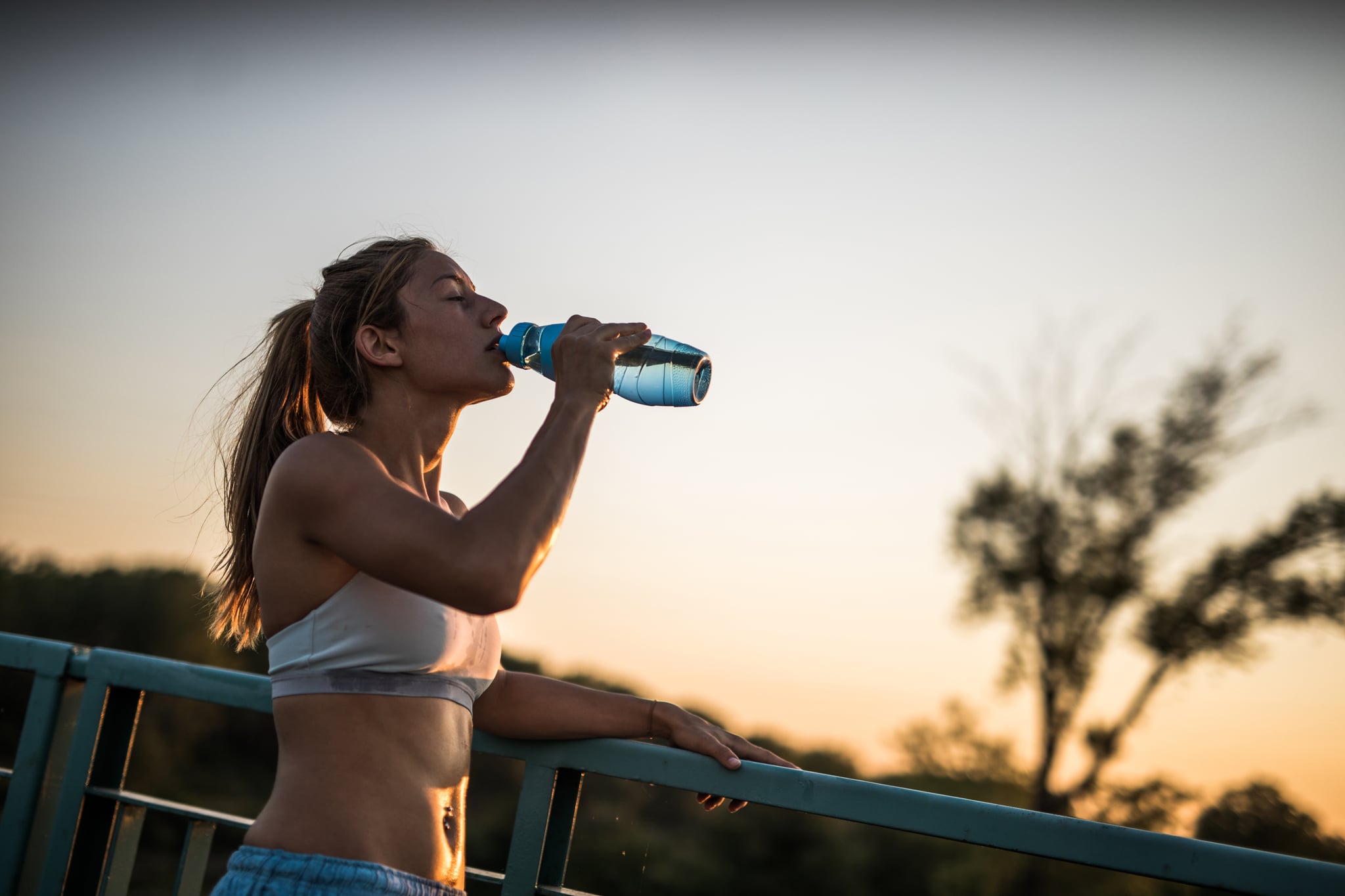How Much Should I Hydrate Before a Run?
Hate That "Sloshy" Feeling? Here's How Much Water You Actually Need on a Run, a Doctor Says

The last thing you want on a run is to be dehydrated; it can cause muscle cramps and feelings of fatigue and sluggishness, and overall just make your run a lot less enjoyable. But overhydration, drinking too much water, has its own dangers, the least of which is that uncomfortable feeling of water splashing around your insides. You know you need water before and after a workout and sometimes even during it, but finding the perfect balance is often a shot in the dark.
"Generally what I say is to prehydrate with about 15 to 20 ounces of water, two to three hours before a long run," said Sander Rubin, MD, sports medicine specialist at Northwestern Medicine. That gives you time to use the bathroom and let the water move through your system, he explained, before you head out the door. He also recommended staying hydrated for the full 24-48 hours before a run.
What about during runs? In that case, Dr. Rubin told POPSUGAR, "One important thing to consider is not to overhydrate." Overhydration can lead to its own feelings of discomfort: the above-mentioned "sloshy" feeling, side cramps, and, more seriously, hyponatremia, which occurs when the level of sodium in your bloodstream gets too low and which can give you nausea, fatigue, and headaches. (If you think you might be experiencing hyponatremia, avoid drinking fluids and head to a doctor ASAP.)
If your runs are under 45 minutes to an hour long, Dr. Rubin said, it may not be necessary to routinely hydrate when you're on the road. "Just use your thirst as a guide," he advised. If you are going to be running for over an hour, or if you're heading out on an especially hot or humid day, you could drink a few ounces of water every 15 to 20 minutes to keep yourself energized. On those long runs, an electrolyte sports drink or gel can help replenish the compounds you're losing through sweat, such as sodium and potassium. (Try one of these gels, drinks, and hydration supplements to help.)
Whatever your hydration plan, if you're training for a race, make sure you stay consistent on your training runs. "Prepare by doing what you plan to do during the race," Dr. Rubin said. If you don't typically stop for water on your regular runs, for example, it's not a great idea to stop at every aid station and drink a full cup; your body isn't used to dealing with the extra liquid. "Don't deviate too much from your baseline," Dr. Rubin said. "Practice whatever you're going to do in the race."
Dehydration is uncomfortable at best, leading to low-energy runs and stiff, cramping muscles; at worst, it can mean a trip to the hospital. Be aware of any of those more serious signs, which can include light-headedness, headaches, intense cramps, or any visual issues. Take them as a sign to stop and seek medical attention, Dr. Rubin said. Want to avoid those symptoms altogether? Well, yes. Drink plenty of water: at least 64-80 ounces per day, and even more than that if you are preparing for a big run or live in a hot area. Don't forget to drink up afterward, either. (Try this refreshing strawberry-watermelon smoothie to promote recovery.) Trust us, your body will thank you.





